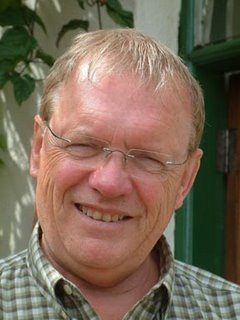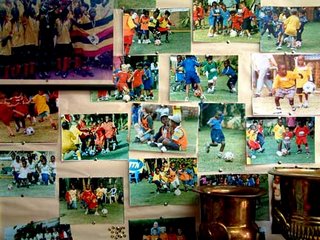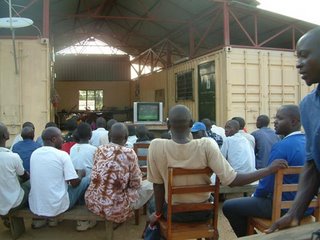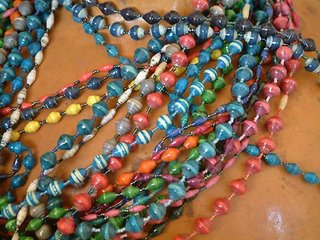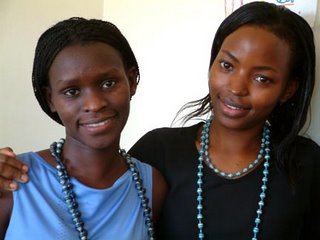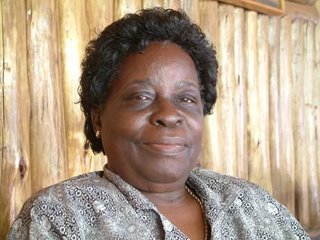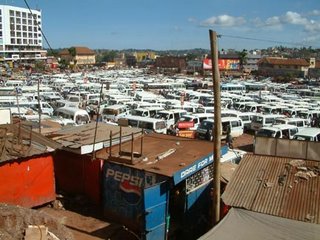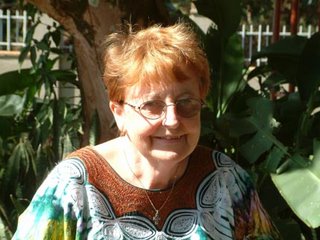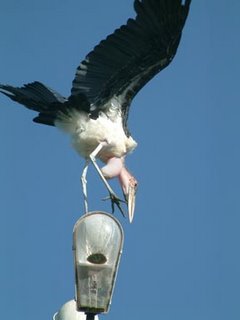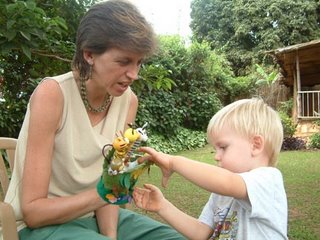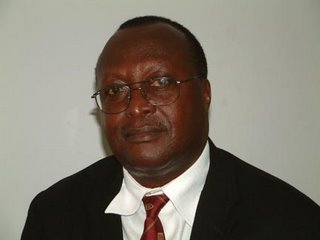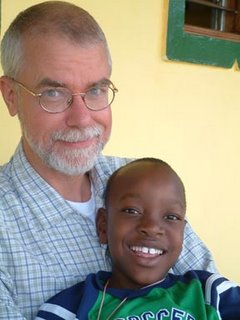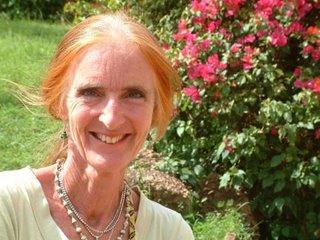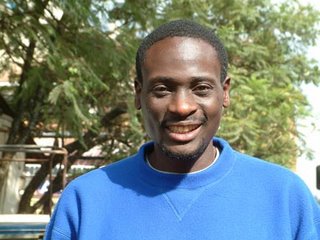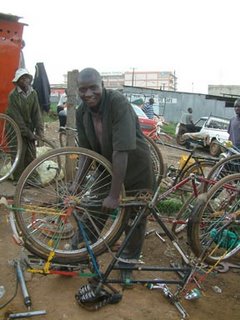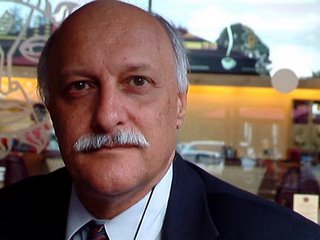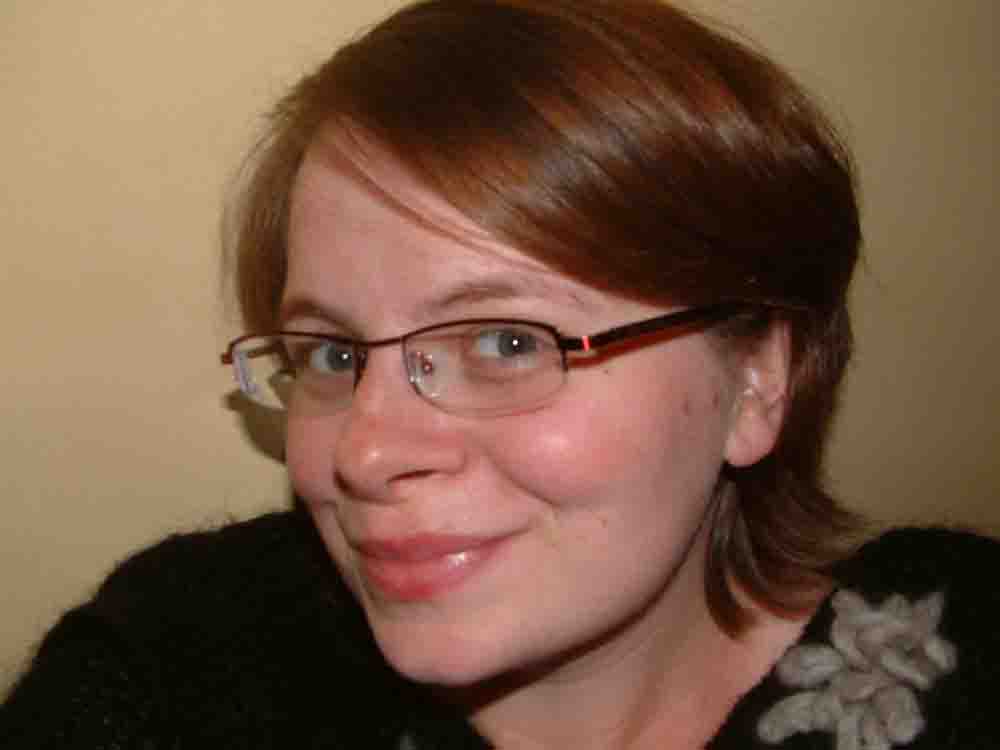


In the foot of Uganda, not far from the border with Rwanda, lies the town of Kabale- and not far from Kabale, is a little slice of paradise which stunned me by its serenity and beauty; Lake Bunyonyi, 25 Km in length and over 6400 F above sea level.
A 50 minute trip in a dugout canoe took me across to
‘Byoona Amagara (Whole Life) Island Retreat’, where I travelled to understand more about how sustainable tourism works in the area, and to meet with Jason Gerver and his staff who run the retreat.
Arriving, the sound track to the island provided all sorts of new melodies- cuckoo like chirps, the night chorus of crickets, a rustle of lizards in the grass. The sound of silence in this place was nature in abundance. Looking at the beauty of the island, it would be easy to assume that all is idyllic, but observation and a chat with Jason soon revealed more.
On my way over in the canoe three questions had struck me;
One- Where were the tree trunks for the canoes coming from?
Two- Why is there a school on an island in the middle of the lake?
And three- What is an ugly resort hotel (which I had passed), doing on the lake shore- looking empty.
Jason helped me fill in some gaps.
The lands around Bunyonyi are heavily cultivated. Where once were indigenous forests, now are terraced plots. When the forests were felled, very few trees remained for the canoes- the only affordable mode of transport available to the locals to cross the lake.
On some islands, Eucalyptus trees have been planted to replenish the trunk supply. These are appealing in the short term, as they grow quickly, but after felling, the remaining trunk splits and two or more grow- each too small for a canoe. What’s more, Eucalyptus are heavily resource dependent and drain the soil of nutrients. So if indigenous trees are replanted- the ones which make good canoes- they can no longer grow in the depleted soil.
Additionally, now that the trees which are large enough to make the canoes are rare on the lakeshore, the boats have to be built inland. Each can cost up to a crazy €2000 (most of which goes on transporting the canoes to the lake)- a cost totally prohibitive for the average would-be lakeside canoe owner.
However, the issue is further complicated. With agricultural land being prime, the only land made available for schools has either been on the islands in the middle of the lake, or high on the hilltops.
So now you have schools on the islands, with not enough canoes to take the kids there!
The staff of Byoona Amagara have come up with at least a temporary solution. As part of their working day, they paddle to shore in the morning, collect the kids, bring them across to school, and then return in the afternoon to take them home. On one of the dugout canoes tied up in Byoona Amagara’s jetty, in proud blue paint, was written, ‘School Bus’! For a longer term solutions, the staff are trying to promote alternative tree species in the region- large enough for canoes, and kind enough to the soil.
So that was question one and two covered, now question three.
The hotel carcass which I saw on land breeds early signs of heavy commercial tourism. Jason told me that before he decided to set up Byoona Amagara, he saw a document which planned for ‘Disney style/ Club Med’ development of the lake. The plan was to depopulate the area, build masses of hotels around the lake, and fill the inner islands with imported tropical bird and butterfly species. Given the relative political instability in the whole region, such mass development could be the ruination of the whole lake- not to mention the surrounding communities. The derelict hotel which currently stands indicated the start of this- but the owner died and building work was abandoned, leaving an ugly, imposing concrete shell.
As an alternative to this development the Byoona Amagara staff set about providing an alternative model. The plan was to build a retreat catering for a range of tourists, provide employment, support the local community. It was to be built with local timbers and materials, and complement the natural aesthetics of the lake. And so far, so good.
I certainly saw innovative uses of resources on the island. Power comes from solar panels, water is heated in special bags which utilise daytime sun. Pit latrines are rotated so as provide compost. Thatch for the roofs comes from dried water reeds. Plus I got to stay in a ‘Geo- Dome’; a funky shaped cabin, looking straight out onto the lake, and made with local timbers.
Amazingly also, digital technology connects the island and the community to the outside world. The Internet comes by way of wireless satellite technology. A laptop and projector (solar energy powered) create a cinema for guests and locals alike. There is also a small library open to the pubic, and a computer lab for training kids from the nearby island schools. As Jason explained, if you are looking for an example of ‘the digital divide’ Lake Bunyoni is it. The open doors of Byoona Amagara now at least provide a stepping stone into cyber space.
What Byoona Amagara have done, is provide an alternative model of tourism in the region, with the community at the core. The views they provide aren’t bad either!
